Picture a palace on a private island, a butler greeting you at the airport, and a gold-plated suite with a view nobody else can buy. It's the stuff of bucket lists, right? But here’s the reality check—when it comes to hotel rankings, “10-star hotel” is more of a tall tale than an official badge. People have searched for that elusive 10-star wonder, dreaming of insane luxury and perks that make seven-star joints look basic. But dig a bit deeper, and you’ll see how the ranking game really works, how hotels became obsessed with stars, and which places in the world break the mold and dare to call themselves even higher than five. Ready to find out how high hotel luxury really goes—and if the fabled 10-star actually exists?
What Is a 10-Star Hotel and Does It Really Exist?
If you’ve ever googled "10 star hotel" or scrolled through Instagram luxury feeds, you might notice this glitzy term pops up everywhere but never on any official hotel website. Why? Because hotel star ratings max out at five according to recognized bodies like Forbes Travel Guide or AAA Diamond. There’s just no such thing as a 10-star certification. A few outliers (hello, Burj Al Arab in Dubai) famously call themselves seven-star, but that’s more marketing genius than legit ranking. The phrase "10 star hotel" is sort of an urban legend—used by bloggers or ultra-wealthy guests to describe places that blew their minds (and broke their budgets), but not anything you’ll find in an official travel guide.
Part of the confusion comes from how different countries rate hotels. In Europe, you might find five-star-superior ratings. In Asia, some places create their own internal system to flex their luxury muscles. The real clincher? Even the fanciest hotels in the world, like Emirates Palace in Abu Dhabi or The Mark in New York, stick to the global standard: five stars. So, if you see a hotel calling itself 10-star, take it as a flashy way to say, “We’re beyond luxury,” not as something officially ranked by hospitality authorities.
Now, you’re probably thinking, “Fine, but there have to be hotels that really feel like 10 stars.” And you’re right—some push way beyond slick rooms and a spa. These places dazzle with private jets, Michelin-starred chefs, and experiences so wild you’ll be pinching yourself. But even the most insane perks you can name haven’t officially moved the needle past five stars. It all comes down to perception. What blows one guest away might just be “expected” for another regular in the suite life. If you want a quick definition: A "10 star hotel" is a phrase for fantasy-level service and amenities, but not an official title anywhere in the world.
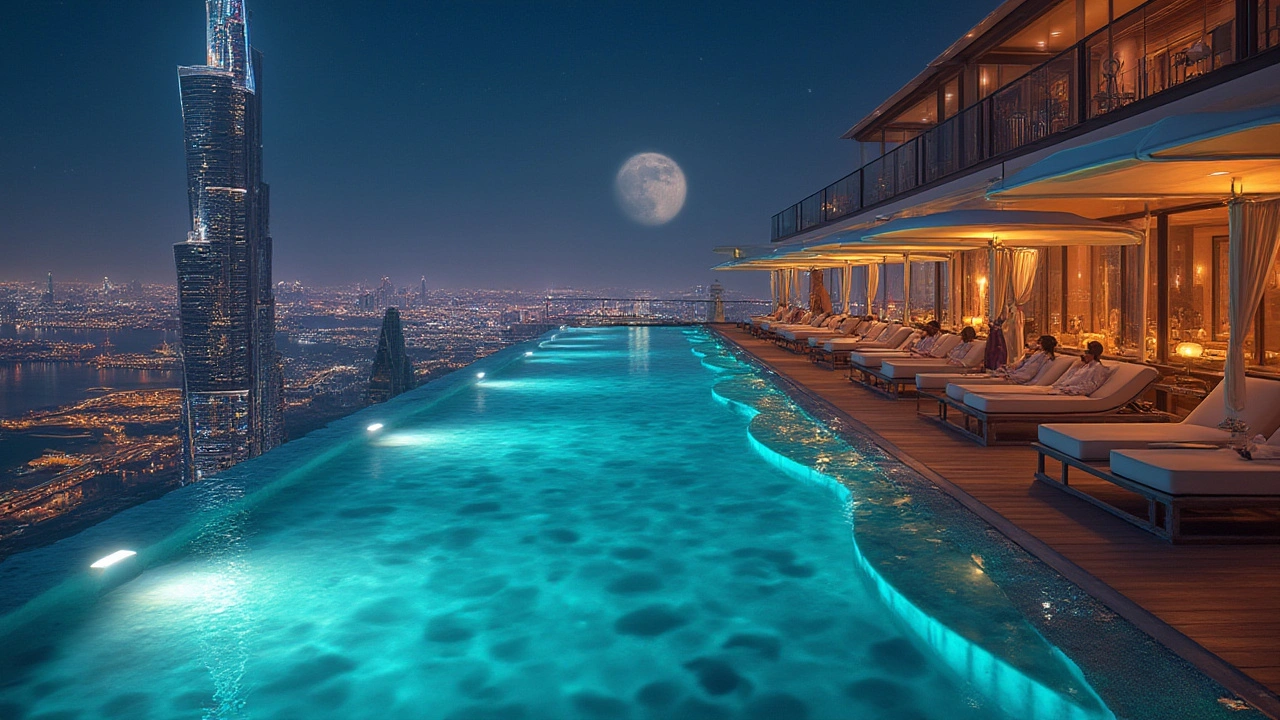
The Truth About Hotel Star Ratings and How Luxury Hotels Break the Mold
If “10 star hotel” isn't official, you might be wondering how hotel ratings even work. In most parts of the world, a five-star hotel has to hit strict criteria: think 24/7 concierge, gourmet dining, fancy spas, designer toiletries, and next-level cleanliness. But past five stars, the rules go out the window. Self-proclaimed “seven star” hotels use it to grab media attention. Take Burj Al Arab in Dubai—the so-called only seven-star hotel. A journalist once called it that, and the moniker stuck. But there’s no global body handing out seven, eight, or 10 stars.
Luxury hotels want to stand out, so they dream up their own badges. Some will claim “beyond five star” or “ultra-luxury.” It’s a bit like labs racing to make faster supercars—a flex, not an official title. Still, a few hotels are so off-the-charts, people start tossing around 10-star as a joke.
- Burj Al Arab – Lavishly shaped like a sail, with interiors dripping in gold, private Rolls Royce fleets, and a helipad on the roof.
- Emirates Palace – Offers guests a gold vending machine, private beaches, and suites reserved for royalty.
- The Palms Casino Resort, Las Vegas – The Empathy Suite goes for $100,000 a night, complete with private art installations and 24-hour butler service.
Notice something? Even with wild features, nobody is officially handing them a 10-star plaque. That stuff only exists in pop culture, and on websites that don’t explain the fine print.
It’s also worth noting how star ratings in different countries can be totally confusing. The UK often relies on the AA Hotel Services. In France, the official body is Atout France. And then you’ll see private groups like Forbes Travel Guide or Michelin giving their own awards—and they all stop at five. The only thing that changes is the bar creeps higher every year, as hotels compete with crazier perks (think underwater suites in the Maldives or glass igloos in Finland for Northern Lights views).
What does this mean for you? If you see a hotel boasting about a star count higher than five, consider it a stylish way to scream “we’re more exclusive than the rest.” But if you want hard facts, look at official ratings, honest traveler reviews, and real photos, not just flashy buzzwords.
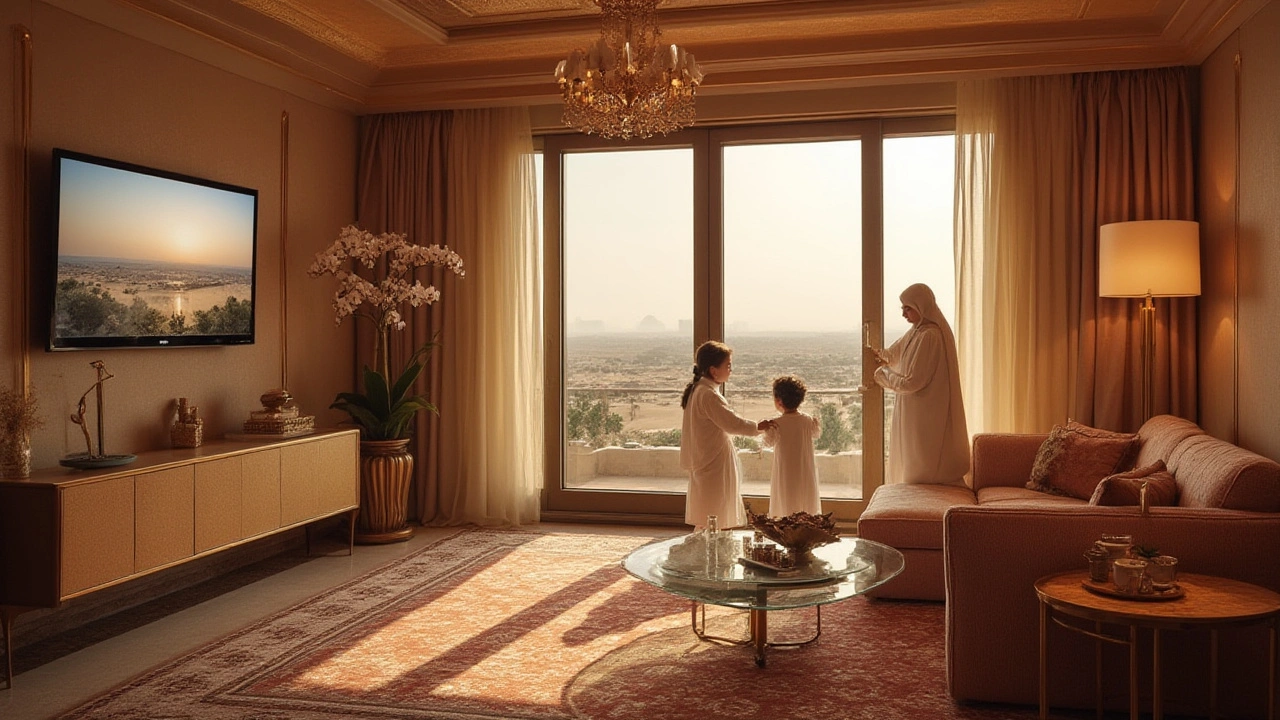
How to Spot True Ultra-Luxury: Beyond the Myth
The real art is recognizing a hotel that delivers an experience worth calling 10-star—even if nobody hands out the badge. Start by looking for places with a real wow factor: private beach clubs, villa stays with personal chefs, and unique perks like your own mixologist or daily spa treatments. Some destinations stand out because hotels make headlines for bending the rules of luxury—and Dubai is a world champion at this. Don’t be surprised if you see suites with gold-plated iPads or infinity pools hanging off the side of a 70th floor. But if you want to really get the insider scoop, check out:
- Who actually comes back to the hotel (repeat high-profile guests are a big clue)
- What travel insiders say (watch for awards from Forbes or The World’s 50 Best Hotels)
- Behind-the-scenes videos on YouTube—for a true peek at VIP experiences you won’t find with a Google search
Sometimes, it’s the little things that reveal true luxury. Look for hotels where staff remember your name, know your drink order before you sit down, and customize stays for families, friends, and couples. Genius hoteliers actually train staff on “anticipatory service”—where they know what you want before you ask—like magic.
You might be asking, “Is there an official way to book a private island villa, or do you have to be on some hidden list?” Funny enough, many so-called “impossible” experiences are out there for regular guests, if you save up or find a good deal during off-peak season. Booking sites like Leading Hotels of the World or Virtuoso let you search by perks: private pool, butler, helicopter transfers, and so on. Even top-name hotels in cities like Paris, Tokyo, or Singapore are upping the ante with sky-high suites, gastronomic adventures, and tailor-made spa rituals that regular five-star brands just can’t touch.
Just remember, the line between real luxury and marketing is blurrier than that fancy pool after too many martinis. Do your homework, read reviews from seasoned travelers, use virtual tours, and—if in doubt—ask for references from someone you trust. If it sounds too good to be true, it just might be a clever bit of hotel myth-making.
So, while you probably won’t find a true 10 star hotel next time you’re shopping for an over-the-top escape, you can absolutely find places that feel like it. The trick is digging beyond the buzzwords, using real-world tips, and picking the right destination for the experience level you deserve. Happy hotel hunting!

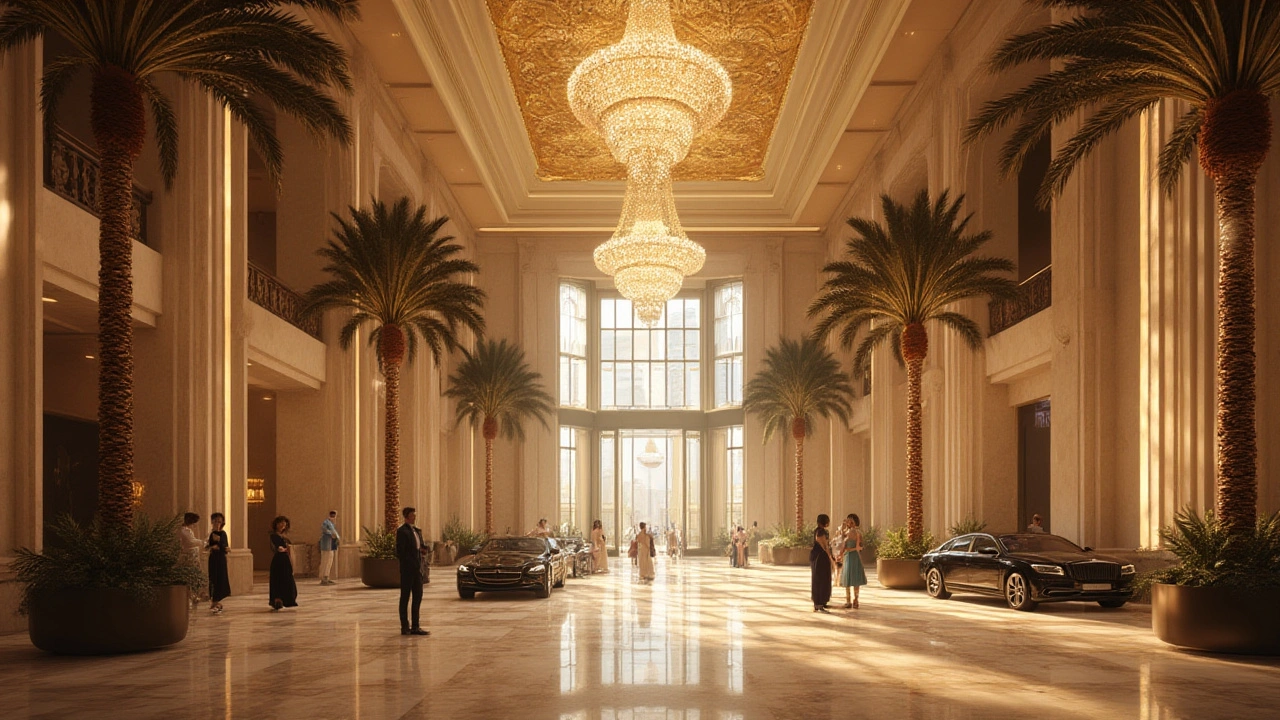

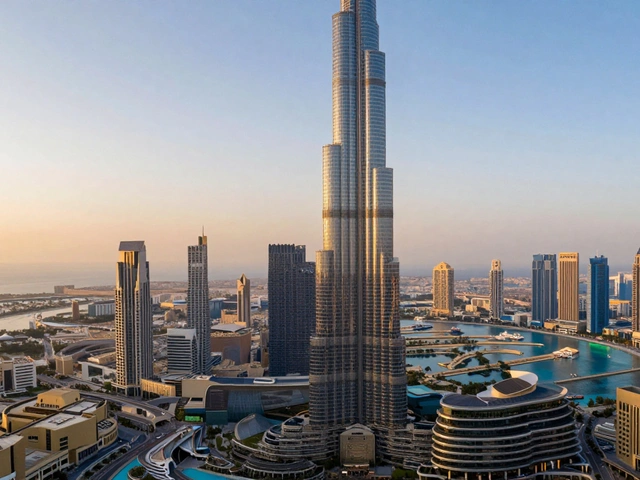



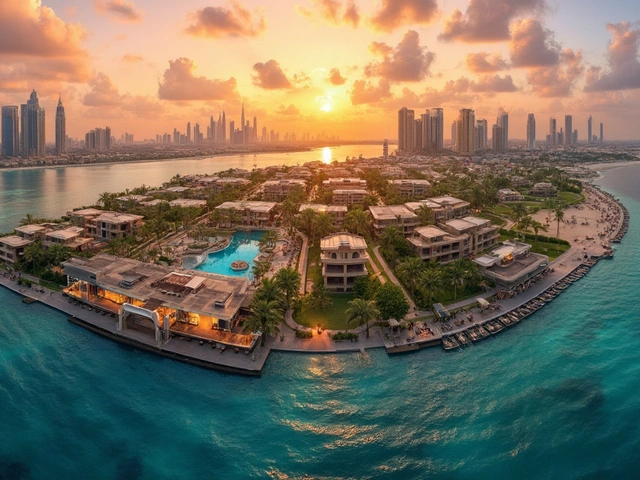
Andrew Chen
July 31, 2025 AT 14:26It's fascinating how the idea of a "10-star hotel" has captured people's imaginations when, in reality, the global hotel rating systems don’t officially recognize such a category.
The highest officially recognized rating is typically 5 stars, though some organizations or marketing campaigns push for '7-star' status to denote ultra-luxury.
These inflated ratings are often more about branding than true hospitality benchmarks.
In fact, the evaluation criteria for hotels emphasize service, amenities, and guest experience rather than an arbitrary star number over 5.
So, while there are hotels that might feel like a '10-star experience' due to extravagance, no formal system certifies this.
That said, understanding what truly makes hospitality exceptional is about more than stars; it’s the details and personalized touches that often matter most.
Farrah Kennedy
August 7, 2025 AT 23:13Honestly, the whole "10-star hotel" thing feels like a ridiculous marketing fantasy spun by someone who has never worked in hospitality.
It's like trying to sell champagne in a plastic cup and calling it vintage gold.
The absurdity comes from people craving an unattainable ideal instead of appreciating what a truly well-run hotel offers.
When you break it down, luxury is subjective, and saying something is 10 stars just waters down the meaning of genuine service excellence.
Plus, the obsession with these mythical ultra-ratings distracts from real issues like ethical sourcing, sustainability, and genuine guest respect.
I mean, if you need a fake number to convince yourself a stay is worth it, maybe luxury just isn't your vibe.
Alek Mercer
August 14, 2025 AT 21:33This post does a commendable job shedding light on a topic many people misunderstand.
While some establishments claim "10 stars" for marketing, it's essential to recognize that official bodies like Forbes or AAA don't provide ratings beyond five stars or diamonds.
The notion of a 10-star hotel exists more in fiction than reality.
However, this doesn't negate the existence of ultra-luxurious accommodations that provide exceptional experiences.
Understanding the rating frameworks and their limitations helps travelers make informed decisions rather than getting swept up in hyperbole.
William Dean
August 15, 2025 AT 11:26Oh man, the whole concept of a "10-star" hotel is just a wild marketing stunt. Nobody's seriously rating these joints beyond the venerable 5-star scale.
It's like expecting a burger joint to serve Michelin 3-star cuisine because they slapped some fancy adjectives on their menu.
The best hotels are about consistency, service, and genuine hospitality, not a made-up number they throw around to sound extra fancy.
I'm tired of seeing hotels brag about "beyond 5-star experiences" when in reality it's just gold-plated fluff.
If you want real luxury, then look at feedback and service quality, not some inflated star nonsense.
Stop buying the hype.
Mark Sullivan
August 18, 2025 AT 08:53What really frustrates me about this is how these so-called 10-star hotels are a blatant example of how the industry manipulates consumers.
There’s no official framework for 10 stars because it simply doesn’t make sense.
Ratings are designed to guide travelers, but fake stars undermine that purpose and mislead people into thinking they’re getting far more than they are.
This also contributes to the unethical prioritization of appearance over substance.
Honestly, it's a reflection of a consumer culture obsessed with status symbols rather than real value or ethical practices.
People should scrutinize these claims harder and demand transparency.
Dan Thornton
August 20, 2025 AT 16:26One good point about the '10-star' myth is that it really forces us to think about what actually counts as excellence in hospitality.
Instead of focusing on increasingly ridiculous numeric ratings, maybe it's better to look at tangible qualities like guest satisfaction, staff professionalism, and unique experiences.
These factors are far more telling than an overused star system.
Also, these myths sometimes hurt honest operators who work hard within established rating frameworks.
We need clearer communication regarding what star ratings really mean so consumers can make better choices with confidence.
Jennifer Cacace
August 24, 2025 AT 03:46Honestly, the whole '10-star' hotel hype screams of marketing jargon trying way too hard to sound fancy.
The luxury hospitality sector is riddled with buzzwords and over-the-top claims designed to confuse rather than clarify.
I'd also say the obsession with mythical star ratings overshadows highly nuanced factors like customized service protocols, architecture concepts, and even geopolitics of location.
Real luxury isn't just about flashy gold fixtures or rare wines; it’s a complex mix of exclusivity, cultural context, and impeccable execution — none of which can be boiled down to a simplistic 'star' count.
We need to be critical of how 'luxury' is commodified in language if we want to appreciate true elite hospitality.
Cass Dixon
August 26, 2025 AT 11:20As someone who has dabbled quite a bit in the luxury travel and hospitality space, I find the idea of a 10-star hotel ridiculous on its face.
The rating systems in place – like Forbes Travel Guide and AAA – are extremely detailed and comprehensive but stop at five stars or diamonds.
Anything beyond that is pure hyperbole concocted by marketing for hype, not substance.
Furthermore, genuine luxury transcends numbers; it's about craftsmanship, attention to detail, and an almost obsessive level of personalized service suggesting that the guest experience is paramount.
So while flashy claims for 10 stars might generate clicks or bookings, discerning travelers see through the facade.
Josh B
August 28, 2025 AT 18:53Honestly, I've stayed at some crazy posh places and never once did any hotel tell me, 'Hey dude, welcome to your 10-star stay.'
The ratings top out at five, and that's enough to decide if the place is swanky or not.
Everyone wanting an imaginary 10 star is basically just boosting the hype machine, and honestly, it feels like a cash grab.
Luxury to me is about comfort, a bit of style, and staff that are genuinely chill and helpful — not about a fake number that doesn't mean anything official.
Maybe it's time people learned to judge hotels by what matters and stop chasing stars that don't exist.
Miriam Benovitz
August 29, 2025 AT 22:40OMG can we please stop with this 10-star nonsense? Like seriously, who even decided hotels needed to compete in a cosmic star wars to prove they're the best?
It's just one giant ego flex, wrapped in gold-plated towels and overpriced champagne bottles.
Honestly, I think the whole idea was cooked up by some execs trying to distract us from the fact that some of those places treat their staff like trash and charge insane rates for mediocre service.
Real luxury comes with respect and warmth, not just a bigger star count.
Call me crazy, but I don't buy the hype. Give me good vibes and honesty over flashy stars any day.